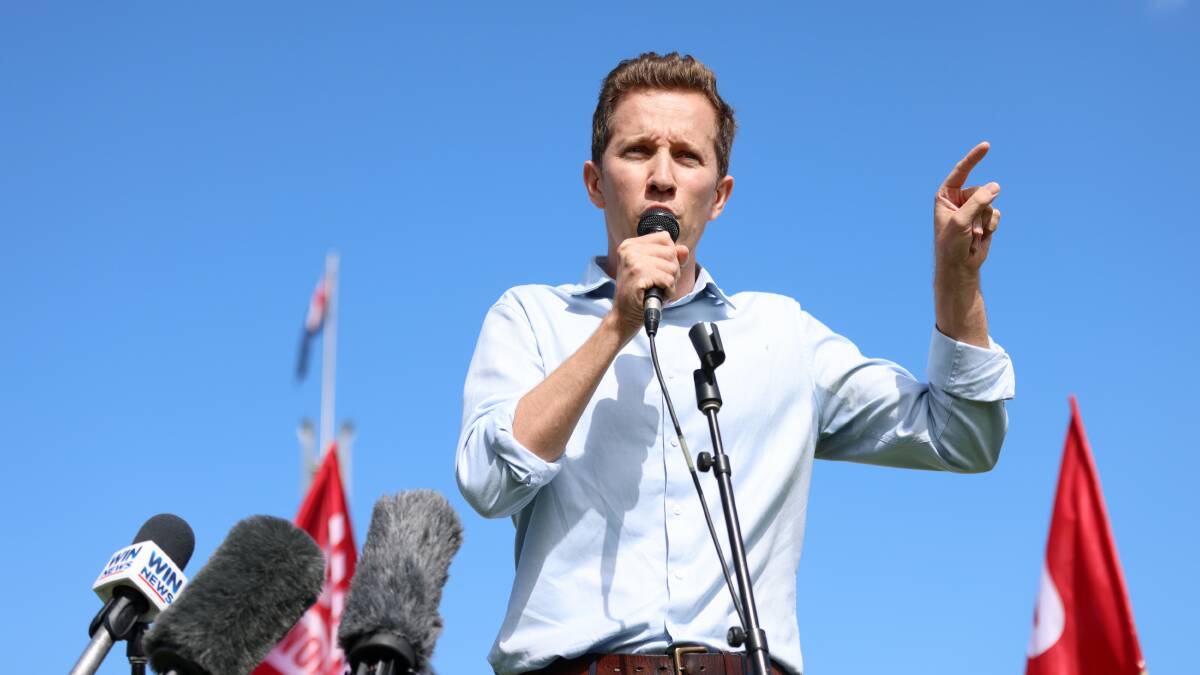The Greens have said they will pass the Albanese government's affordable housing bill before July if Labor incentivises state rent freezes and guarantees $2.5 billion for public and affordable housing each year.
Subscribe now for unlimited access.
$0/
(min cost $0)
or signup to continue reading
The announcement marks the first break in the stalemate between the two parties over the government's $10 billion Housing Australia Future Fund, which relies on the Greens' support to pass in the Senate.
While Dr Michael Fotheringham - managing director of the Australian Housing and Urban Research Institute - said it was good to see movement on the bill, he criticised the Greens for floating "populist" ideas "that we know won't work as alternatives to this package of legislation that is quite comprehensive".
"We need to move beyond that sort of politicking to actually create solutions that will work," he said.

The Housing Australia Future Fund would invest $10 billion, and use up to $500 million a year in interest earnings to build 30,000 social and affordable homes over the next five years.
Dr Fotheringham praised the fact that the fund would provide funding in perpetuity, meaning money for public and affordable housing would no longer be at "the mercy of treasuries".
"We could have a change of government and change of priorities, and housing stops being funded if it's dependent on budget measures. The future fund protects it from that politics."
The Greens have refused to support the fund in its current form, describing it as a "gamble on the stock market" with no guaranteed returns.
The party has pointed to the fact that the Australian Future Fund lost 1.2 per cent last year, arguing that this would have resulted in a $120 million hit to the housing fund, had it existed.
Greens spokesperson for housing and homelessness, Max Chandler-Mather, told ABC's Insiders on Sunday the party would support the HAFF bill if the government guaranteed $2.5 billion for social and affordable housing per year, down from their original demand of $5 billion.
Mr Chandler-Mather said the Greens also wanted the government to offer an extra $1 billion per annum to states and territories, via the National Housing Finance and Investment Corporation, to impose a two-year freeze on rent increases and ongoing rent caps.
"The reason we're proposing this is because there are now millions of renters who are falling into renter stress - that means that a lot of them are one rent increase away from eviction onto the streets," he said.
"We need public housing, but we need the queues for social and affordable housing to reduce as well."
But Dr Fotheringham said rent freezes can scare landlords into selling, creating "turmoil for the tenant who's likely to risk eviction" and "a lot of upheaval in an already disturbed market".
"Just using that language immediately puts it into a more alarmist category - it's actually unhelpful and it scares landlords ... [who] are looking at cost of living and interest rates and thinking, well, this isn't going to work," Dr Fotheringham told The Canberra Times.
"What we need to do as a housing system is move away from the 'us versus them' thinking of landlords versus tenants, and actually realise that a good outcome for managing a property long term sustainably is good for both."
Dr Fotheringham instead advocated for caps on the size and frequency of rent increases, such as in the ACT where landlords can't raise rent by more than 10 per cent above the consumer price index.
READ MORE:
He agreed that a minimum budgetary guarantee on the amount spent on housing affordability would be a good caveat to add to the HAFF bill, but said the ultimate priority was passing legislation that secures more social and affordable housing.
"Any measure that moves towards that is a positive," he said.
The Coalition show no signs of supporting the fund, arguing that it will be inflationary and result in interest rate rises.
Minister for Housing Julie Collins on Sunday called on senators to stop delaying the bill.
"Australia desperately needs the 30,000 new social and affordable rental homes... what we don't need are proposals that won't work, are not backed by evidence and would only make our housing challenges worse," she said.
"The fund is backed by numerous stakeholders, including housing experts, community housing providers, Housing Ministers from across the country and numerous crossbenchers across the Parliament".


